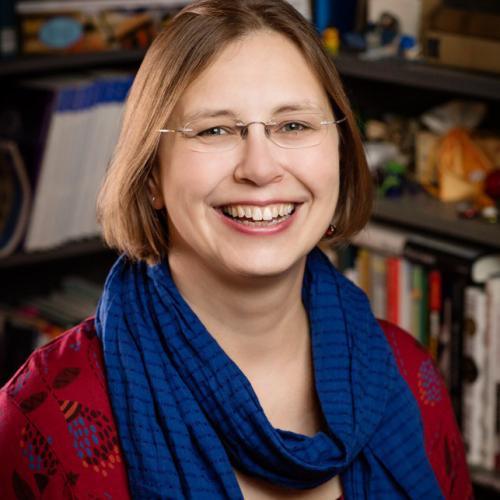GSLIS Assistant Professor Carol Tilley recently spoke with the U of I News Bureau about kids and summer reading. Tilley, a former school librarian and expert on comics and youth services librarianship, spoke with News Bureau news editor Dusty Rhodes. The full interview is available on the campus website.
Parents tend to regard comics as the “candy” of the reading pyramid — treats to be consumed sparingly, and only after reading “real” books. Should parents worry if their kids gravitate toward comics?
My short answer is, no.
For many decades, librarians, teachers, parents and other folks who care about kids and their reading have relied on metaphors that books and reading are like food or ladders or steppingstones. These metaphors are easy but not always accurate ways of thinking about children’s literacy development.
Most contemporary scholars of reading argue – and I concur – that reading is reading, at least in terms of gaining fluency, which is an aspect of reading that involves expression and understanding. Comics, gaming websites, sports pages, text messages, novels and any other kind of reading you can imagine help develop a person’s reading fluency.
Beyond that, it’s important to understand that comics aren’t all funny animals or superheroes – not that either of those genres is bad or suspect. This medium comprises a wide variety of styles, genres and formats that can also help readers of all ages develop empathy, learn new ideas and more.
In a lifetime of reading comics, this medium has challenged me to consider what makes the American political mythos both inspiring and troubling (for example, Mark Millar’s “Superman: Red Son”) and what lies at the heart of friendship (for example, Andy Runton’s “Owly” series). I’ve learned about important events in history (Jim Ottaviani’s “T-Minus: The Race to the Moon”), gained insights into life in little-understood realms (Guy Delisle’s “Pyongyang: A Journey in North Korea”) and relived not-always-pleasant moments from adolescence (Mariko and Jillian Tamaki’s “Skim”). And I’ve been enchanted by the worlds I’ve encountered in comics such as David Petersen’s “Mouse Guard” series, Shaun Tan’s “The Arrival” and Linda Medley’s “Castle Waiting.”
And no, not all of those titles are for kids!
